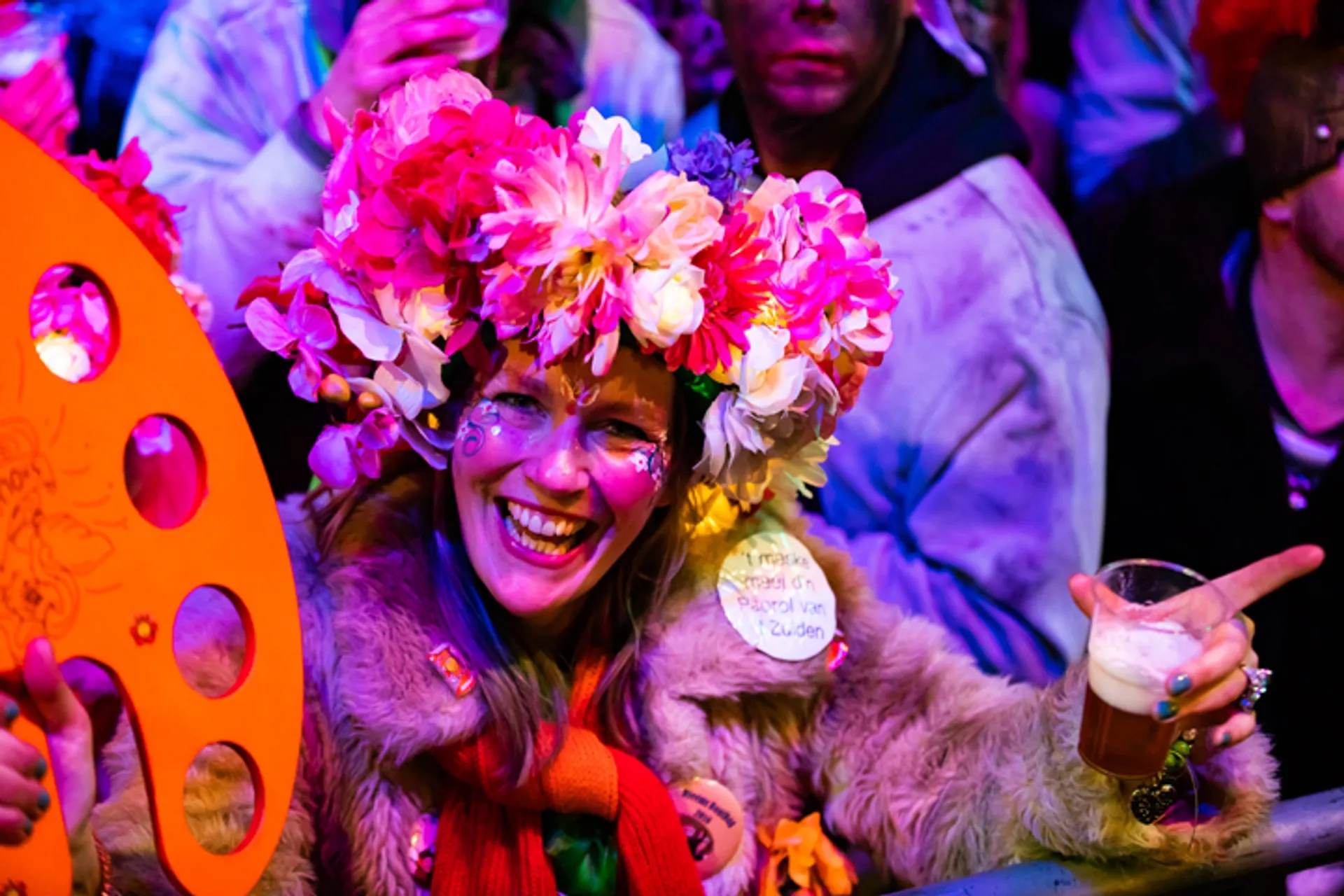Kielegat for beginners
How did carnival originate?
Carnival is a Catholic festival that precedes Lent. It probably has its origins in medieval Italy and gradually spread to other countries over time. The Venetian carnival is still world-famous.
There are various versions about the origin of the name, but it seems to come from the Latin carne vale, which means 'farewell to the flesh'. During the forty days of Lent leading up to Easter, people were not allowed to eat meat.
From Abdera to Kielegat
The first written account of carnival in Breda dates back to a book from 1707. At that time, Breda was referred to as Abdera during carnival (an anagram of Breda) and the carnival participants were called Abderieten. For about fifty years now, Breda has been known as Kielegat during carnival. The boerenkiel is the traditional outfit that was often worn during carnival in the past.
St. Juttemis
Although originally a Catholic celebration, the church prohibited carnival in the early 1900s because it was deemed too unruly. When the people of Breda asked the bishop when they could celebrate carnival again, the answer was always "on St. Juttemis," meaning never. That 'never' lasted until 1936. This means that in 2024 we have a special anniversary: 88 years of carnival in Breda. Eight times the crazy number 11.
For the 55th anniversary of the carnival in Breda in 1991, Breda received the statue of St. Juttemis on Ridderstraat, made by Aimé Tollenaar.
Prince and consequence
In ut Kielegat, the prince reigns over the city during carnival. The carnival prince is appointed for a term of three years. The prince has his own entourage, which consists of two pages, the council of eleven, the fool, the ‘pliesie’, the secretary, and the court chauffeur.
During carnival, but also in the period leading up to it, the prince and his entourage visit various carnival gatherings and pre-parties. In 2024, Prince Driekus d’n Tweejde was ‘dun hoogheid’ of ut Kielegat.
Ut Kielegat also has a youth prince and princess with their own council of eleven.
Traditions
If there is one event with many traditions, it is Carnival. Let’s mention a few.
The eleventh of the eleventh
Carnival is not limited to those four days in February or March. The carnival season officially begins on 11 November, the eleventh of the eleventh. This is when it is announced who will be the (new) carnival prince. According to tradition, we naturally celebrate that with a party.
Every year, carnival has a motto. This can be used by carnival celebrators and participants in the parades as a guideline for their performance or costumes. The Kielegat motto for 2025 is ‘Gift’ur un slinger aon’.
The kick-off
Although carnival is celebrated extensively on the Friday before carnival (and increasingly on Thursday as well), the official start is on Saturday afternoon. Then, the mayor of Breda hands over the keys to the city to the prince of ut Kielegat from the balcony of the town hall. After the prince has declared, in front of a packed Grote Markt, “Kielegatters, the city is ours,” the festivities begin.
Closing
On Tuesday evening, the prince returns the keys. The carnival symbols Kiske and Mieske are removed from the façade of the town hall, and a long procession of the prince, entourage, and thousands of carnival celebrants departs loudly mourning to the Haven. There, Kiske and Mieske are placed on the bonfire. On to next year!
Awards
No carnival without awards. Ut Kielegat has three: the Kieleplak, the Kieleplak Special, and the personal distinction from the prince. Those who are eligible for the first two are defined by various fixed rules. Which eleven individuals receive a personal distinction is entirely up to the prince. Extra special therefore.
Carnival names
Breda is known as Kielegat during carnival, but the various village centres and Haagse Beemden also have their own carnival names.
- Teteringen: Totdenringen
- Bavel: Baviaonenland
- Prinsenbeek: Boemeldonck
- Ginneken: Ut Ginneken
- Ulvenhout: Bosuilendorp
- Princenhage: ’t Aogje
- Haagse Beemden: Giegeldonk
All of these places also have their own carnival prince, with the exception of Ginneken. That area has a baron from the noble family Le Dernière du Moment.
Major fixed events
The real highlight of carnival is of course the Grand Parade, which has been held on Monday afternoons for as long as anyone can remember. A fun procession of floats, groups, duos, and individuals then makes its way through the city centre. With plenty of music, of course.
Brakkensliert
Whoever has the youth has the future. This certainly applies to carnival as well. That's why there is a separate children's parade: the Brakkensliert. All children can participate, either alone, with a small group, or from school.
Street Carnival
The street carnival is becoming increasingly popular. Accompanied by (live) music, the Grote Markt transforms into a swirling mass of carnival revelers for several days during the carnival.
Carnival walk
Sometimes something new is such a success that everyone thinks it should become a tradition. This certainly applies to the carnival-like walk. A week before carnival Saturday, former princes and other carnival dignitaries guide groups around Breda. The walk goes past both 'serious' and carnival-like places while various acts take place along the way.
If you want to participate, keep an eye on the site of the Kielegat foundation. Usually, the tickets sell out in no time.
